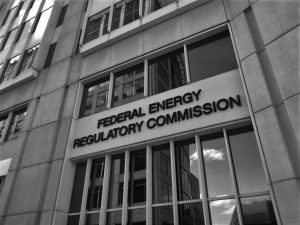 In late September, the Department of Energy (DOE) issued a Notice of Proposed Rulemaking (NOPR) for consideration by the Federal Energy Regulatory Commission (FERC). Using §403, a little-used provision in the DOE Organization Act of 1977, Secretary Perry proposed that FERC, an independent agency, exercise its authority to establish just and reasonable rates for wholesale electricity sales in the name of grid resiliency.
In late September, the Department of Energy (DOE) issued a Notice of Proposed Rulemaking (NOPR) for consideration by the Federal Energy Regulatory Commission (FERC). Using §403, a little-used provision in the DOE Organization Act of 1977, Secretary Perry proposed that FERC, an independent agency, exercise its authority to establish just and reasonable rates for wholesale electricity sales in the name of grid resiliency.
Specifically, the NOPR requires ISO’s and RTO’s create special cost of service compensation for certain types of generation that DOE alleges are essential to protecting grid reliability and resiliency. Facilities would be eligible for this special, non-market compensation if they could provide essential reliability services and have a 90-day onsite fuel supply – essentially only coal and nuclear plants. Additionally, citing an imminent threat of energy outages, DOE directed FERC to fast-track the rule. If adopted, effectively, this rule would end established electricity markets by federally reregulating coal and nuclear facilities. That said, FERC does not have to adopt the details of DOE’s proposal.
The reaction to DOE’s proposed rule have been overwhelmingly negative. Other than the nuclear and coal lobbies, a majority of the energy sector has come out against the rule – former FERC commissioners, states, environmental groups, the oil and gas lobby, the renewable lobby, and consumer groups. This reaction stems in part to several key concerns with the rule – 1) blatant appearance of coal favoritism, 2) a lack of record underlying the proposed rule, and 3) large potential economic and environmental harm resulting from implementing the rule as is.
The electric grid is not at risk of imminent energy outages as the NOPR alleges. The ISOs have already dealt with most of the issues raised by the Polar Vortex, the only potential resilience issue identified by DOE. Nevertheless, the hurricane damage in Puerto Rico, changing energy mix, and rising cyber risks raise key questions about whether the electricity system can remain reliable and resilient.
Thank you Alex for launching this discussion. FERC would be best served by dismissing this NOPR. Yes, there should be ongoing work to enhance the resilience and reliability of the… Read more »
DOE’s presentation to FERC needs to be resubmitted because it lumps together nuclear energy and coal. While both need financial support at the moment, the arguments for nuclear are separate… Read more »
Herschel, I would be really interested in how you arrived at the conclusion about a doubling of demand. Everything I read says that grid demand continues to decline based on… Read more »
Dear Jane, Perhaps this will be helpful to you. In New York today 82% of the GHG that are released come from the end use sectors: transportation, residential, commercial, industrial… Read more »
This NOPR sounds very politically motivated. I agree with the previous poster. No sustained outage has ever been caused by a fuel supply issue. FERC should reject the DOE NOPR. … Read more »
FERC should absolutely dismiss. It is an absurd and thinly veiled attempt to subsidize coal (with an added sop to nuclear because the weak justification of a 90 day fuel… Read more »
I think it is pretty clear that the NOPR is a way to help level the subsidization playing field for nuclear (and coal). Due to regulatory and policies of federal,… Read more »
We are here from the government and here to help your free market. Plus, leaves out hydropower and pumped storage. Dismiss for absurdity.
1. The health costs of coal power (not including climate impacts) exceed the value of the electricity produced, so coal power has negative social value. Throw in climate impacts and… Read more »
Making the grid smart would benefit utility companies and the electricity system as a whole as this would improve reliability, ensure less costly interruptions, enable deferred capital spending on costly… Read more »
FERC should dismiss the NOPR and make it clear that it will not meddle in energy markets to benefit one energy source. Coal as a source of electrical power is… Read more »
Since I’ve filed comments in this proceeding, I’ll simply post links: go to https://elibrary.ferc.gov/idmws/search/fercgensearch.asp Docket number RM18-1 Text Search: Isser [check Description] Basically, the NOPR violates the Administrative Procedures Act,… Read more »
FERC made the right choice to dismiss the NOPR pushed by USDOE Secretary Perry. The idea we should subsidize old and uneconomic (or becoming uneconomic) electric generation plants had no… Read more »
What’s the argument for retention of FERC?